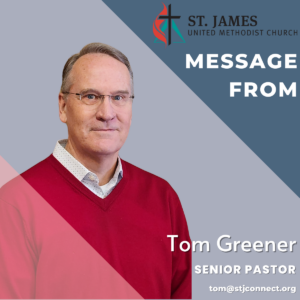
“Reconciliation is so central to the good news of what God has done in Christ that to see no reconciliation in our churches suggests there is no gospel in them.”
— David Fitch, Faithful Presence
Those are hard words to read, and yet, I am not sure I can disagree with the sentiment. The idea of reconciliation is so central to who we are that I do think I can argue that it defines us. Jesus went so far as to say, “if you do not forgive others, neither will your Father forgive your trespasses.” (Mt. 6:15)
At the National Prayer Breakfast some years ago, Arthur Brooks asked the assembled crowd “How many of you love somebody with whom you disagree politically? . . . Make it personal, my friends. . . . Jesus didn’t say, ‘tolerate your enemies.’ He said, ‘love your enemies.’ Answer hatred with love. . . . Ask God to give you the strength to do this hard thing, to go against your human nature, to follow Jesus’ teaching. . . . Ask God to take political contempt from your heart. Sometimes, when it’s just too hard, ask God to help you fake it.”
Reconciliation asks us to see that “other” that we too easily want to ignore. It asks us to draw close to the very people we would rather push away.
Forgiveness is not something that we do, so much as it is something that we discover. We discover our own pain, and our own sinfulness. We learn to know ourselves as people in need of forgiveness, not just people who have been wronged.
This faith of ours, this faith that is so ground in the story of the one who went to the cross, invites us to be different. It invites us to go against all the instincts to divide the world and name ourselves as the good guys. It invites us to give up on pushing anyone away, and instead be a part of the singular group: sinners in need of grace.
Jim Wallis has said that “The church is supposed to be saying, and the church is supposed to be showing, that our life together can be better. That better way of living wasn’t just meant to benefit the Christians, but everybody else too. And that is the point of it. Christianity is not just a religion that gives some people a ticket to heaven and makes them judgmental of everybody else. Rather, it is a call to a relationship; and one that changes all our other relationships. Jesus calls us into a new relationship to God; and he says that also brings us into a new relationship with our neighbor, especially with the most vulnerable of this world, and even with our enemies.”
I hope you will take some time this Lent to consider how to live into reconciliation, how to restore the broken community of our faith, and how we together might be a people who proclaim the Good News of grace.
Pastor Tom

